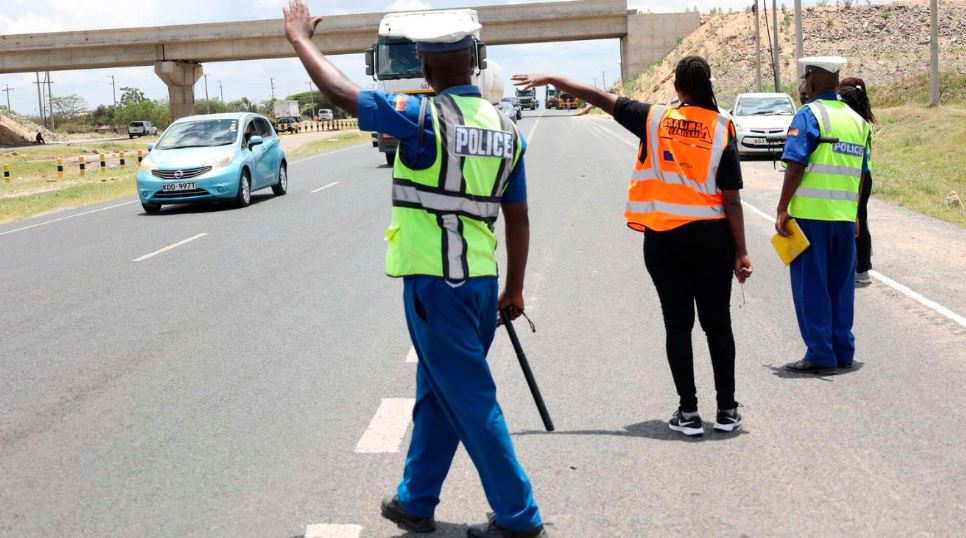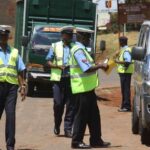In Kenya, the rising tide of road accidents has cast a spotlight on the dangers of drunk driving, prompting the government to tighten regulations and enforce stricter penalties. With the Traffic (Drink-Driving) Rules, 2025, now in effect, the National Transport and Safety Authority (NTSA) and the National Police Service (NPS) have ramped up efforts to curb this reckless behavior. Drunk driving remains a leading cause of fatalities on Kenyan roads, with tragic incidents like the April 2025 Kaplong-Kapkatet crash, which claimed 15 lives, underscoring the urgency of robust enforcement. This comprehensive guide dives into the penalties for drunk driving in Kenya, the legal framework, testing procedures, and practical steps for motorists to stay compliant and safe.
Understanding Drunk Driving Laws in Kenya
The Traffic (Drink-Driving) Rules, 2025, gazetted under Legal Notice 86 of 2024 and enacted through amendments to Section 4 of the Traffic Act, CAP 403, form the backbone of Kenya’s fight against drunk driving. These regulations, effective from May 17, 2024, define “drink-driving” as operating a motor vehicle on a public road or place after consuming alcohol beyond prescribed limits. The rules aim to protect lives by imposing stringent penalties, including fines, imprisonment, and driving license suspensions or revocations, particularly targeting repeat offenders.
Why Drunk Driving is a Major Concern in Kenya
Kenya’s roads have seen a worrying surge in accidents, with the NTSA reporting over 3,600 fatalities in 2024 alone, many linked to drunk driving. The reintroduction of breathalyzer checkpoints, popularly known as “alcoblow,” reflects the government’s commitment to addressing this crisis. Transport Cabinet Secretary Davis Chirchir emphasized, “This is not about punishment; it’s about saving lives,” highlighting the human toll of reckless driving. The 2025 rules build on earlier proposals, such as the Traffic (Drunk Driving) Rules, 2023, to create a zero-tolerance approach, especially for drivers of public service vehicles (PSVs), commercial vehicles, and school transport.
Penalties for Drunk Driving in Kenya
The penalties for drunk driving in Kenya are tiered, escalating with the frequency and severity of offenses. Below is a detailed breakdown of the consequences under the Traffic (Drink-Driving) Rules, 2025, for convictions under Sections 44(1) and 45(1) of the Traffic Act.
Driving License Suspension and Revocation
The 2025 regulations outline a graduated penalty system for driving license suspensions and revocations, designed to deter repeat offenders:
- First Conviction: A driver’s license is suspended for up to 30 days. This serves as a warning to first-time offenders, allowing them to reflect on their actions while temporarily losing driving privileges.
- Second Conviction (within one year of the first): The license is suspended for up to six months. This extended period aims to reinforce accountability for those who fail to learn from their initial offense.
- Third Conviction (within one year of the second): The license faces suspension for up to one year, signaling a severe escalation in consequences for persistent violations.
- Fourth Conviction (within two years of the third): The driver’s license is revoked, and the offender is barred from applying for a new license for five years. This harsh penalty targets habitual offenders, effectively removing them from the roads for an extended period.
These measures ensure that penalties grow progressively stricter, aligning with the government’s goal of reducing drunk driving incidents.
Fines and Imprisonment
In addition to license suspensions, drunk driving carries significant financial and legal repercussions:
- Fines: Offenders face fines of up to KSh 100,000. This hefty penalty applies to drivers who exceed the prescribed alcohol limits or refuse to provide a specimen for testing.
- Imprisonment: Convicted drivers may face a jail term of up to two years, or both a fine and imprisonment, depending on the severity of the offense.
- Automatic Disqualification: Any driver convicted of drunk driving is disqualified from holding or obtaining a driving license for at least one year, further emphasizing the seriousness of the offense.
These penalties apply uniformly to all drivers, with stricter standards for those operating PSVs, commercial vehicles, or school transport, where any detectable alcohol level is an offense.
Penalties for Refusing Alcohol Tests
Refusing to provide a specimen for an alcohol test is treated as an admission of guilt under the 2025 rules. Offenders who decline a breathalyzer, blood, or urine test face:
- A fine of up to KSh 100,000.
- Imprisonment for up to two years, or both.
- Potential license suspension or revocation, depending on prior convictions.
This provision closes loopholes, ensuring that drivers cannot evade accountability by refusing to comply with testing procedures.
Prescribed Alcohol Limits in Kenya
The Traffic (Drink-Driving) Rules, 2025, set clear blood alcohol concentration (BAC) limits to determine intoxication levels:
- PSV, Commercial, and School Transport Drivers:
- 0 microgrammes of alcohol per 100 milliliters of breath.
- 0 microgrammes of alcohol per 100 milliliters of blood.
- 0 microgrammes of alcohol per 100 milliliters of urine.
- Private Vehicle Drivers:
- 35 microgrammes of alcohol per 100 milliliters of breath.
- 80 microgrammes of alcohol per 100 milliliters of blood.
- 107 microgrammes of alcohol per 100 milliliters of urine.
These limits reflect a zero-tolerance policy for professional drivers, given their responsibility for passenger safety, while private drivers are held to a slightly higher but still strict threshold.
Alcohol Testing Procedures
The 2025 rules outline rigorous protocols for alcohol testing to ensure accuracy and fairness:
Breathalyzer Tests (Alcoblow)
- Approved Devices: Breathalyzers must be certified by the Kenya Bureau of Standards (KEBS) and calibrated per manufacturer guidelines.
- Hygiene Standards: Each test uses a single-use straw to prevent contamination.
- Trained Officers: Only certified police officers can administer breath tests, ensuring procedural integrity.
- Calibration Records: Officers must maintain a written schedule of breathalyzer calibrations, which may be required as evidence in court.
Blood and Urine Tests
- Conducted by Professionals: Blood or urine samples must be collected by trained health professionals in the presence of a uniformed police officer.
- Hospital Settings: For drivers involved in accidents and hospitalized, tests are conducted only with the consent of the attending medical practitioner, ensuring no interference with patient care.
Testing Scenarios
Police officers in uniform may require a specimen for testing if:
- They suspect a driver of drunk driving.
- A road traffic accident occurs, and the driver is believed to have been operating the vehicle.
- The driver is hospitalized post-accident, subject to medical approval.
These measures ensure that testing is conducted systematically, with safeguards to protect drivers’ rights while maintaining road safety.
The Reintroduction of Alcoblow Checkpoints
In April 2025, Transport CS Davis Chirchir announced the return of alcoblow checkpoints on major Kenyan roads, following amendments to the Traffic Act that restored NTSA’s enforcement authority. Previously halted due to legal challenges, the alcoblow program has been revitalized with robust legislative backing. Checkpoints are strategically placed on highways and urban roads, targeting high-risk areas for drunk driving. This initiative responds to incidents like the Bomet County crash in April 2025, which highlighted the devastating consequences of impaired driving.
Impact of Drunk Driving Penalties on Kenyan Motorists
The stiffened penalties have sparked widespread discussion among Kenyan motorists, with many acknowledging the need for stricter measures but expressing concerns about enforcement fairness. Posts on X reflect mixed sentiments, with some users praising the government’s focus on road safety, while others worry about potential overreach or inconsistent application. For instance, a post from @moneyacademyKE highlighted the economic pressures driving some Kenyans to illicit alcohol, indirectly fueling drunk driving risks.
Economic and Social Implications
- Financial Burden: Fines of up to KSh 100,000 can strain household budgets, particularly for low-income drivers.
- Loss of Livelihood: License suspensions or revocations can devastate professional drivers, such as matatu or truck operators, who rely on driving for income.
- Public Awareness: The reintroduction of alcoblow has sparked campaigns urging drivers to avoid alcohol before driving, with NTSA emphasizing personal responsibility.
Challenges in Enforcement
Despite the robust framework, challenges remain:
- Calibration and Training: Ensuring all breathalyzers are properly calibrated and officers adequately trained is critical to avoid legal disputes.
- Public Trust: Past criticisms of alcoblow enforcement, including allegations of bribery, underscore the need for transparency.
- Rural Reach: Extending enforcement to rural areas, where checkpoints are less common, remains a logistical hurdle.
How to Stay Compliant and Avoid Penalties
To steer clear of drunk driving penalties, Kenyan motorists can take proactive steps:
- Plan Ahead: Arrange for a designated driver or use ride-hailing services like Uber or Bolt if you plan to consume alcohol.
- Know the Limits: Understand the prescribed alcohol limits, especially if you drive a PSV or commercial vehicle.
- Cooperate with Authorities: Refusing a breathalyzer or other test automatically incurs penalties, so compliance is key.
- Stay Informed: Follow NTSA updates on platforms like X (@ntsa_kenya) for real-time information on checkpoints and regulations.
- Advocate for Safety: Support community initiatives promoting sober driving, such as those by local NGOs or road safety campaigns.
Broader Context: Other 2025 Traffic Regulations
The Traffic (Drink-Driving) Rules are part of a broader set of 2025 regulations aimed at enhancing road safety:
- Traffic (Motor Vehicle Inspection) Rules, 2025: Mandates inspections for vehicles over four years old and post-accident checks.
- Operation of Commercial Service Vehicles Rules, 2025: Sets standards for commercial vehicles, including telematics and work-hour limits.
- Traffic (School Transport) Rules, 2025: Enforces safety standards like seatbelts and signage for school buses.
These rules collectively aim to modernize Kenya’s transport sector, reduce accidents, and protect vulnerable road users like schoolchildren.
The Traffic (Drink-Driving) Rules, 2025, mark a pivotal step in Kenya’s quest for safer roads. With penalties ranging from 30-day license suspensions to five-year bans, the government is sending a clear message: drunk driving will not be tolerated. For Kenyan motorists, staying informed and compliant is not just about avoiding fines or jail time—it’s about protecting lives, including their own. As NTSA and NPS intensify enforcement through alcoblow checkpoints, the onus is on drivers to make responsible choices. By understanding the penalties for drunk driving in Kenya and embracing sober driving, we can collectively reduce the tragic toll of road accidents and build a safer future for all.





